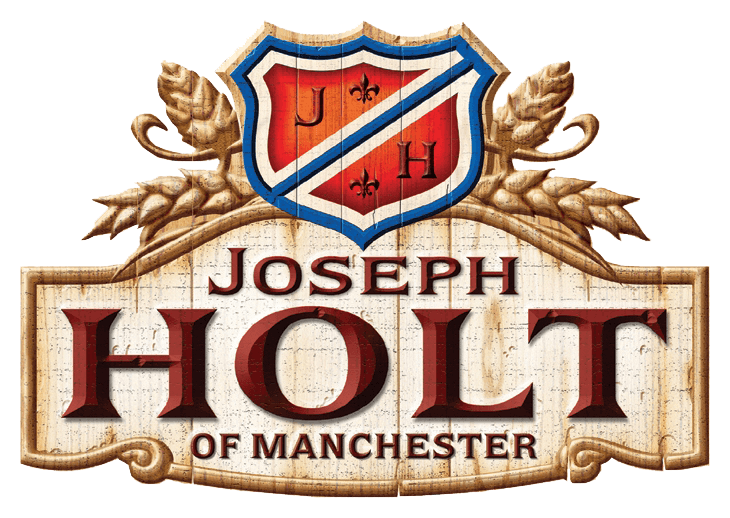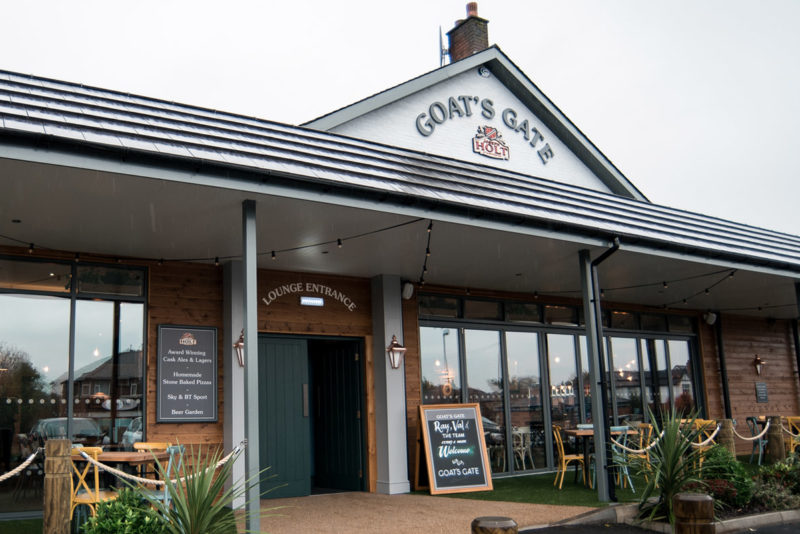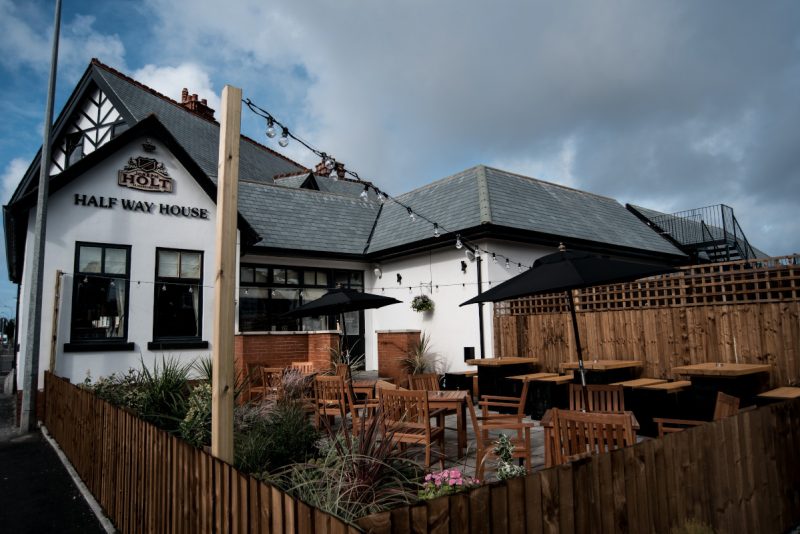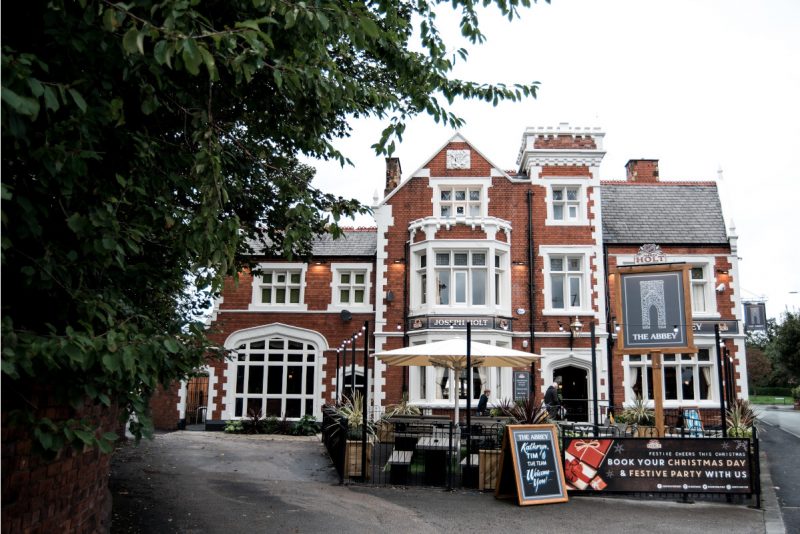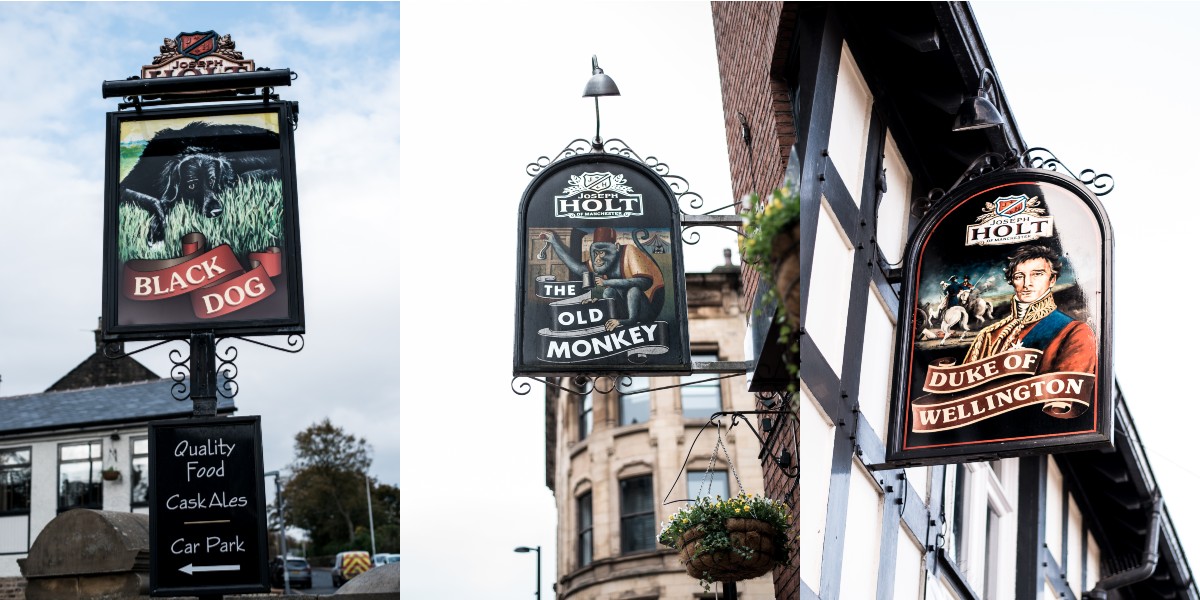
A Little Look Into The History of Pub Names
Have you ever thought about the history behind some pub names?
Take a walk down any British high street and you’re sure to spot a pub or two. Almost every single British town, city and village has one and you can be sure that, no matter how old the building is, the name of the pub draws some form of inspiration from a moment in history.
Britain was built on pubs and there’s a unique heritage to all of the pub names and signs you see.
Pub names depict everything from local folklore, historic events, royalty and notable characters. A simple pub sign can hold the key to a town’s past and when it comes to the history of pub names, each one is different.
The Origins and History of Pub Names
Pub names are believed to stem from Roman times where public houses and inns would hang vine leaves outside to act as a trading sign to attract travellers and passersby that there was wine being sold inside.
It’s believed that when the Romans invaded Britain, vine leaves were in relatively short supply, so instead, they hung bushes up. It’s thought that this is what inspired the first pub names, such as The Hollybush, The Bull & Bush and The Bush.
Pub Names in the Middle Ages
The first proper pubs didn’t appear until many centuries later and the history of pub names came from when inn owners would hang distinctive objects outside in order to distinguish their building from surrounding properties. Names such as The Boot, Copper Kettle and The Plough become popular.
By the 12th century, the naming of public houses and inns was fairly commonplace and with pub names came pub signs. During a time where most of the population was illiterate, signs were used instead of names to promote the inns and public houses. As ale was a primary trade, many public houses chose to use something to do with beer, which is where names such as The Hop Pole, The Three Barrels and The Barley Mow originated.
Many pub names originated on the back of wars and battles throughout the Middle Ages. For example, the Turk’s Head or Saracen’s Head has strong references to the Crusades, as does our own Lower Turks Head.
Royal Pub Names
Royal pub names have always been popular but in 1393, an act was passed under the reign of King Richard II where it was compulsory for public houses and inns to have a sign outside in order to identify as such.
Many pubs chose to adopt the name The White Hart, as it was the personal badge of the King. The Crown was also a popular choice, as it meant that during the time where Kings had a relatively short reign time, they could pledge support to the current reigning monarch without needing to change the pub name.
You then get many pubs named after Queens, certain Kings, Princes, Dukes and Lords.
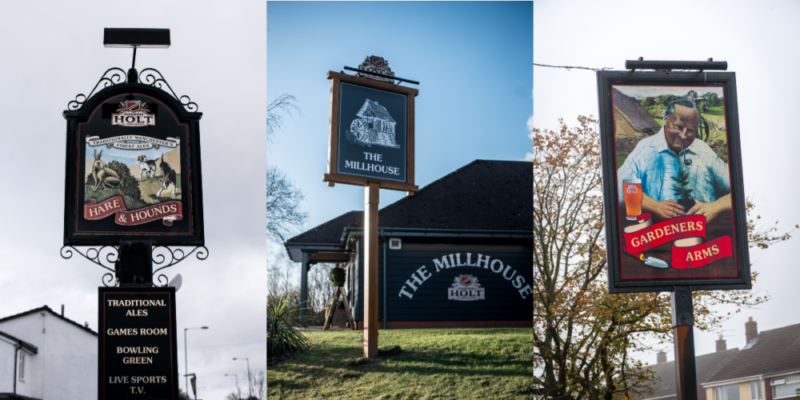
Heraldry Influence on Pub Names
Another notable theme when looking at the history of pub names is heraldry. Heraldry of course refers to the use of design and symbols to portray and represent a name or institution.
As Black, Red, White and Golden Lions have formed part of many coats of arms following the Norman conquest, many pubs took inspiration from this time.
The Red Dragon forms part of the Welsh coat of arms, The Unicorn is part of the Scottish coat of arms and The Red Lion, which features in the coat of arms of over 150 English families, is the most popular pub name in Britain. There are over 600 Red Lion pubs located around the country, including three Joseph Holt Red Lions.
Sporting Pub Names
The history of pub names isn’t just reserved for royalty and coat of arms.
A lot of pubs get their names from hunting grounds, old sports and names. Pub names such as The Greyhound, The Fox & Hounds and the Hare & Hounds were all popular choices.
The Bird In Hand is said to come from King Henry VIII’s love and passion for falconry, whilst The Cock comes from the days where cockfighting was a popular pastime for many workers.
18th Century Travel
During the 18th Century, the population became much more mobile so a need for coaching inns grew. Pubs and inns such as The Waggon & Horses, The Coach & Horses and The Horse & Groom became common and marked points where stagecoaches and travellers could stop for the night.
Later on, canals and railways gave many towns, villages and cities a Navigation Inn, Station Inn or Railway Inn – Joseph Holt has no less than 5 Railway pubs!
It was around this time when pubs also began to merge business. This is possibly due to the new act on requiring a licence to sell gin. Before the Gin Acts was introduced, gin could be sold and bought anywhere. As the legislation changed, selling gin now required a licence and had to be sold in a premises that also sold ale or wine.
As pubs paired together into one, the result was sometimes a contradictory, and often quite strange, name. For example, the Swan and Woolpack, the Cat and Fiddle, and the Whale and Cow.
Military Influence on Pub Names
As the British Empire expanded across the world, battles and wars became key moments in history for the people back home.
Often these are named after military boats, such Frigate, the Orion, Waterloo, Trafalgar and the Brigadier.
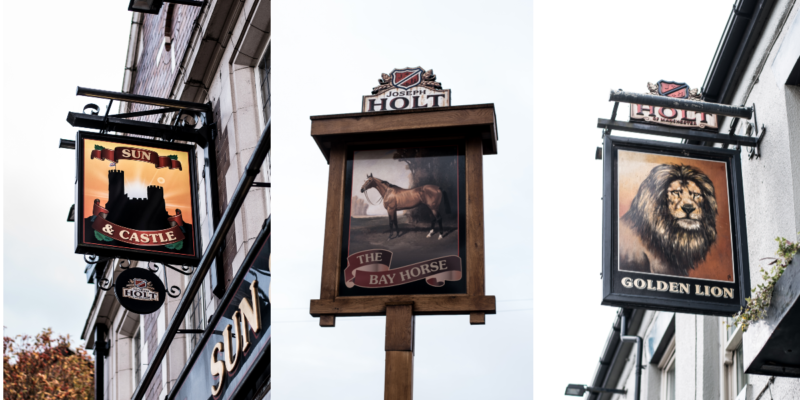
The Wonderful World of Pub Names
With so many pub names used across the UK, it would be hard to pay a visit to them all.
But, it is important to remember that the history of pub names goes back many centuries and forms a huge part of British culture.
We have a fair few of these pubs with historic names in the Joseph Holt family, so find your nearest pub here, pay it a visit and revel in the mystery of the Great British pub name.
